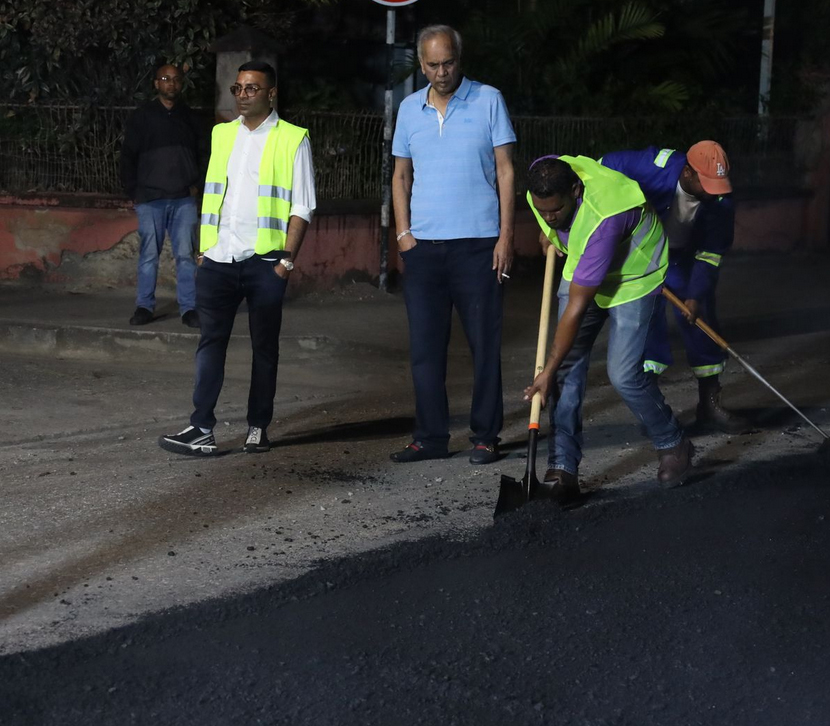(Trinidad Guardian) Two of the country’s biggest contractors say they wholeheartedly welcome the full proclamation of the Public Procurement and Disposal of Properties Act. But the Junior Sammy Group of Companies says in addition to promoting accountability and transparency, the law will address certain misconceptions that some members of the public have for their industry.
“The public thinks this one is favoured, this one is being given contracts just so willy-nilly, which from our experience is not necessarily the case. Generally, it’s either we’re selected or invited to tender and that’s what we respond to and in selective tendering, there’s a pre-qualification process,” explained Dave Aqui, a consultant for the Junior Sammy Group of Companies.
Aqui added that this level of transparency will also benefit others in the industry, who will now have some evidence for recourse if they themselves see that they are being eliminated from participating in certain projects that they’ve met the requirements for.
According to section 13 (1) (a) of the law, one of the key functions of the Office of the Procurement Regulator is to establish a comprehensive database of information on public procurement, including information on tenders received, the award and value of contracts, and such other information of public interest as the Office thinks fit.
Meanwhile, Sieunarine Coosal, the executive chairman of the Coosal’s Group of Companies, believes the legislation will promote public confidence when it comes to how taxpayers’ dollars are spent.
“The legislation will further ensure the citizen receives value for money, transparency and accountability as it relates to all expenditure of public monies on all related construction projects, goods and services for the benefit of Trinidad and Tobago. This legislation will be a game changer as to how business is conducted in the future,” Coosal said in a media release sent to Guardian Media.
The executive chairman said there’s also a provision in the law that will help them plan for the future.
“I also see the Annual Procure-ment Plan, which is a requirement of the legislation, which needs to be published within six (6) weeks of the national budget, as a strategic mechanism which will greatly assist the private sector in planning and responding to the upcoming programmes and projects.”
Section 24 (1) and (2) of the law speaks to reports that the Procurement Regulator will have to submit to Parliament annually.
The subsections state the report shall include, “a figure representing the total value of contracts as awarded by public bodies, and another figure representing the cost of the total value of procurement contract variances for that year; the number of unfulfilled contracts awarded by public bodies in respect of procurement; a summary of transactions in respect of each public body specifying in respect of public procurement, the number of procurement contracts awarded; the number of procurement contracts varied; the quantum of those variances and the number of unfulfilled procurement contracts and the quantum of cost incurred.”
Aqui told Guardian Media that the Junior Sammy Group has no problems with this information being made available to the Parliament, despite the fact that it can, in turn, make its way into the public domain.
“It’s state funds that are used, it’s public funds and we support the transparency in public procurement, so I could only see it ironing out some of the allegations that are made by the general public, in so far of transparency in Government spending and there are means at present if one wants to find out about certain things that happens in public tendering and public procurement, you can access it through various means.”
Currently, there is no chairman for the Office of the Procurement Regulator, since former Procurement Regulator Moonilal Lalchan ended his term on January 11, 2023.
On Friday, Attorney General Reginald Armour, SC, told the Parliament that the deputy regulator will act in that capacity until the position is filled.
Aqui said he has no issue with who does the function if the job is done, and he told Guardian Media he hopes whoever is appointed gets the backing to do the work.
“All we are hoping is that the Office is given the teeth to provide what is in the law and iron out any of the usual perceived misconceptions that may exist within the processes that we follow.”




